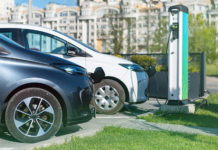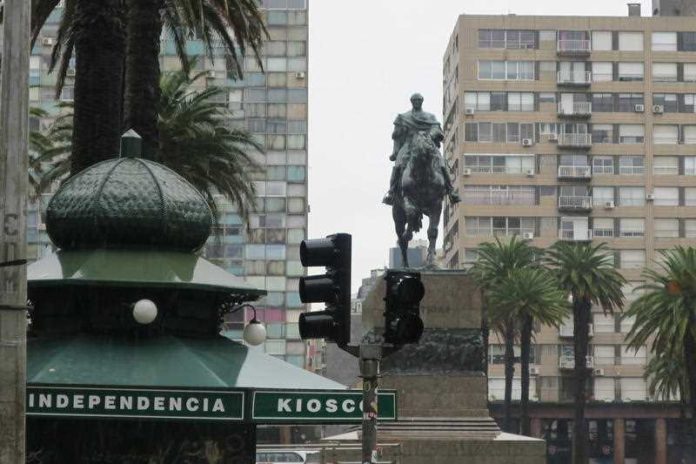A system collapse wiped out power across Argentina and also impacted neighbouring Uruguay, with the nations initially scrambling to restore supply.
Electricity services have been restored to all of Argentina and Uruguay following a massive blackout that left around 48 million people without power on Sunday, authorities said.
The cut, which began just after 7am, also caused short, localised losses of power in Paraguay, but didn’t impact Tierra del Fuego in Argentina’s extreme south because the region is not part of the national system.
The episode was the first time a power cut had affected the majority of Argentina, with a population of more than 44 million, and the entirety of Uruguay, which has 3.4 million inhabitants.
“These are failures that occur (even) with diligence. The amazing thing is the chain of events that took place to cause the total disconnection,” Argentina’s Energy Ministry Gustavo Lopetegui told a press conference.
He said the outage took place “automatically to protect the system.”
“We don’t have any more information right now on how it occurred. We’re not ruling out any possibility, but a cyber attack is not among the main alternatives being considered.”
‘Big impact’
Flavia Vega, a hotel concierge in Argentina’s wine hub of Cafayate, told SBS News the blackout had a “big impact” on business.
“In the restaurant, our fridge was not working … Air conditioning [was down], so all the rooms were cold.”
Ms Vega also said credit card systems were not working, meaning payments from visitors could not be processed.
Waldo Alberto, who was visiting Cafayate from the nearby city of Tucuman, told SBS News the blackout was “shocking”.
“I am here with my grandmother. I asked her, ‘have you seen something like this in the past?’ and she said ‘this is the first time’.”
He said he passed long queues at gas stations.
With plenty of Argentinians already angry about electricity prices, he said the blackout would likely impact the upcoming federal election.
He hoped it would be a one-off.
“We don’t want to be Venezuela,” Mr Alberto said.
Hospitals, clinics on generators
Argentina’s energy secretariat had earlier said the “interconnection system” had “collapsed,” producing “a massive power cut” for which its generators had been unable to compensate, but that the causes had not been determined.
Sources from the official energy agency of Paraguay, which borders Argentina to the northeast, told AFP that cuts there had been “momentary.”
A spokesperson for RGE, the biggest energy distributor in Brazil’s southern Rio Grande do Sul state that borders both Argentina and Uruguay, said they’d had no reports of cuts.
Earlier in the day, power had returned to some sectors of Buenos Aires but the metro and trains were still halted.
Public hospitals and private clinics were running on generators.
“The only inconvenience is the elevators. We only have one working, but all services are operating without problems,” said an employee at the Fernandez Hospital.
‘This killed us’
It is Father’s Day in Argentina and some restaurants were expecting many customers.
The restaurant had been fully booked and Ferreira had been expecting to make two or three times as much money as on a normal day.
Some people shared messages on WhatsApp with advice on how to prepare for a lengthy outage, such as collecting water.
In the interior plains region of Junin, residents stocked up on drinking water sold in supermarkets.
In Cordoba, Argentina’s second city, people headed to bakeries looking to buy supplies for the traditional Father’s Day barbecue.
“We decided to open because we need to work, but early on we lost seven or eight tables of customers because we couldn’t prepare coffee or bake bread,” Carlos Arce, the owner of a bakery.
Argentines also went to the polls in several provinces on Sunday to elect governors, with some local media reporting voters cast ballots by candlelight.
In Montevideo, some restaurants in the downtown area had power back by 11:00 am (1400 GMT).
More than an hour after the blackout, UTE said its system was being brought back “from zero.”
Argentina and Uruguay have a common power grid centred on the bi-national Salto Grande dam, 450km north of Buenos Aires.


































